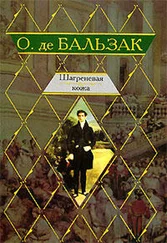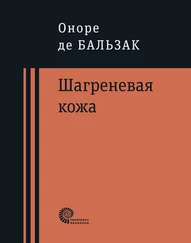| "Ah," she answered, "unless I had had a very strong motive, I should never have run the risk of offending the countess, for if she ever came to know that I had warned you--" |
- Ах, без важной причины я ни за что не решилась бы навлечь на себя недовольство графини, ведь если она когда-нибудь узнает, что я предупредила вас... |
| "And who would tell her, mademoiselle?" cried Raphael. |
- А кто может ей рассказать? - воскликнул Рафаэль. |
| "True," the old maid answered. She looked at him, quaking like an owl out in the sunlight. |
- Вы правы, - отвечала старая дева, хлопая глазами, как сова на солнце. |
| "But think of yourself," she went on; "several young men, who want to drive you away from the baths, have agreed to pick a quarrel with you, and to force you into a duel." |
- Но подумайте о себе, - добавила она, - молодые люди, желающие изгнать вас отсюда, обещали вызвать вас на дуэль и заставить с ними драться. |
| The elderly lady's voice sounded in the distance. |
Вдали послышался голос пожилой дамы. |
| "Mademoiselle," began the Marquis, "my gratitude--" But his protectress had fled already; she had heard the voice of her mistress squeaking afresh among the rocks. |
- Сударыня, благодарю вас... - начал маркиз. Но его покровительница уже исчезла, заслышав голос своей госпожи, снова пискнувшей где-то в горах. |
| "Poor girl! unhappiness always understands and helps the unhappy," Raphael thought, and sat himself down at the foot of a tree. |
"Бедная девушка! Несчастливцы всегда поймут и поддержат друг друга", - подумал Рафаэль и сел под деревом. |
| The key of every science is, beyond cavil, the mark of interrogation; we owe most of our greatest discoveries to a Why? and all the wisdom in the world, perhaps, consists in asking Wherefore? in every connection. |
Ключом ко всякой науке, бесспорно, является вопросительный знак; вопросу: Как? - мы обязаны большею частью великих открытий. Житейская мудрость, быть может, в том и состоит, чтобы при всяком случае спрашивать: Почему? |
| But, on the other hand, this acquired prescience is the ruin of our illusions. |
Но, с другой стороны, выработанная привычка все предвидеть разрушает наши иллюзии. |
| So Valentin, having taken the old maid's kindly action for the text of his wandering thoughts, without the deliberate promptings of philosophy, must find it full of gall and wormwood. |
Так и Валантен, обратившись без всякой философской преднамеренности блуждающими своими мыслями к доброму поступку старой девы, почувствовал сильную горечь |
| "It is not at all extraordinary that a gentlewoman's gentlewoman should take a fancy to me," said he to himself. "I am twenty-seven years old, and I have a title and an income of two hundred thousand a year. |
"Что в меня влюбилась компаньонка, в этом нет ничего необыкновенного, - решил он, - мне двадцать семь лет, у меня титул и двести тысяч ливров доходу! |
| But that her mistress, who hates water like a rabid cat-for it would be hard to give the palm to either in that matter-that her mistress should have brought her here in a boat! Is not that very strange and wonderful? |
Но что ее госпожа, которая по части водобоязни не уступит кошкам, прокатила ее в лодке мимо меня, - вот это странно, вот это удивительно. |
| Those two women came into Savoy to sleep like marmots; they ask if day has dawned at noon; and to think that they could get up this morning before eight o'clock, to take their chances in running after me!" |
Две дамы приехали в Савойю, чтобы спать как сурки, спрашивают в полдень, взошло ли уже солнце, - а нынче встали в восьмом часу утра и пустились за мной в погоню, чтобы развлечься случайной встречей". |
| Very soon the old maid and her elderly innocence became, in his eyes, a fresh manifestation of that artificial, malicious little world. It was a paltry device, a clumsy artifice, a piece of priest's or woman's craft. |
Старая дева со своею сорокалетнею наивностью вскоре стала в глазах Рафаэля еще одной разновидностью коварного и сварливого света, стала воплощением низкой хитрости, неуклюжего коварства, того пристрастия к мелким дрязгам, какое бывает у женщин и попов. |
| Was the duel a myth, or did they merely want to frighten him? |
Была ли дуэль выдумкой, или, быть может, его хотели запугать? |
| But these petty creatures, impudent and teasing as flies, had succeeded in wounding his vanity, in rousing his pride, and exciting his curiosity. |
Нахальные и назойливые, как мухи, эти мелкие душонки сумели задеть его самолюбие, пробудили его гордость, затронули его любопытство. |
| Unwilling to become their dupe, or to be taken for a coward, and even diverted perhaps by the little drama, he went to the Club that very evening. |
Не желая ни остаться в дураках, ни прослыть трусом и, видимо, забавляясь этой маленькой драмой, Рафаэль в тот же вечер отправился в курзал. |
| He stood leaning against the marble chimney-piece, and stayed there quietly in the middle of the principal saloon, doing his best to give no one any advantage over him; but he scrutinized the faces about him, and gave a certain vague offence to those assembled, by his inspection. |
Опершись на мраморную доску камина, он стоял в главном зале, решив не подавать никакого повода к ссоре, но он внимательно разглядывал лица и уже своей настороженностью в известном смысле бросал обществу вызов. |
| Like a dog aware of his strength, he awaited the contest on his own ground, without necessary barking. |
Он спокойно ждал, чтобы враги сами к нему подошли, - так дог, уверенный в своей силе, не лает без толку. |
| Towards the end of the evening he strolled into the cardroom, walking between the door and another that opened into the billiard-room, throwing a glance from time to time over a group of young men that had gathered there. |
В конце вечера он прогуливался по игорному залу, от входной двери до двери в бильярдную, поглядывая время от времени на собравшихся там молодых игроков. |
| He heard his name mentioned after a turn or two. |
Немного погодя кто-то из них произнес его имя. |
| Although they lowered their voices, Raphael easily guessed that he had become the topic of their debate, and he ended by catching a phrase or two spoken aloud. |
Хотя они разговаривали шепотом, Рафаэль без труда догадался, что стал предметом какого-то спора, и наконец уловил несколько фраз, произнесенных вслух. |
| "You?" |
-Ты? |
| "Yes, I." |
- Да я! |
| "I dare you to do it!" |
- Не посмеешь! |
| "Let us make a bet on it!" |
- Держу пари. |
| "Oh, he will do it." |
- О, он не откажется! |
| Just as Valentin, curious to learn the matter of the wager, came up to pay closer attention to what they were saying, a tall, strong, good-looking young fellow, who, however, possessed the impertinent stare peculiar to people who have material force at their back, came out of the billiard-room. |
Когда Валантен, которому не терпелось узнать, о чем идет спор, остановился, прислушиваясь к разговору, из бильярдной вышел молодой человек, высокий и широкоплечий, приятной наружности, но со взглядом пристальным и нахальным, свойственным людям, опирающимся на какую-нибудь материальную силу. |


![Агата Кристи - На краю [английский и русский параллельные тексты]](/books/32247/agata-kristi-na-krayu-anglijskij-i-russkij-paralle-thumb.webp)
![Агата Кристи - Объявлено убийство [английский и русский параллельные тексты]](/books/33247/agata-kristi-obyavleno-ubijstvo-anglijskij-i-russ-thumb.webp)
![Фрэнсис Фицджеральд - По эту сторону рая [английский и русский параллельные тексты]](/books/34130/frensis-ficdzherald-po-etu-storonu-raya-anglijskij-thumb.webp)
![Роберт Шекли - Компания «Необузданные таланты» [английский и русский параллельные тексты]](/books/34808/robert-shekli-kompaniya-neobuzdannye-talanty-angl-thumb.webp)
![Уильям Макгиверн - Завтра опять неизвестность [английский и русский параллельные тексты]](/books/35168/uilyam-makgivern-zavtra-opyat-neizvestnost-angli-thumb.webp)
![Айрис Мердок - О приятных и праведных [английский и русский параллельные тексты]](/books/35170/ajris-merdok-o-priyatnyh-i-pravednyh-anglijskij-i-thumb.webp)
![Мэри Райнхарт - Альбом [английский и русский параллельные тексты]](/books/35200/meri-rajnhart-albom-anglijskij-i-russkij-paralle-thumb.webp)
